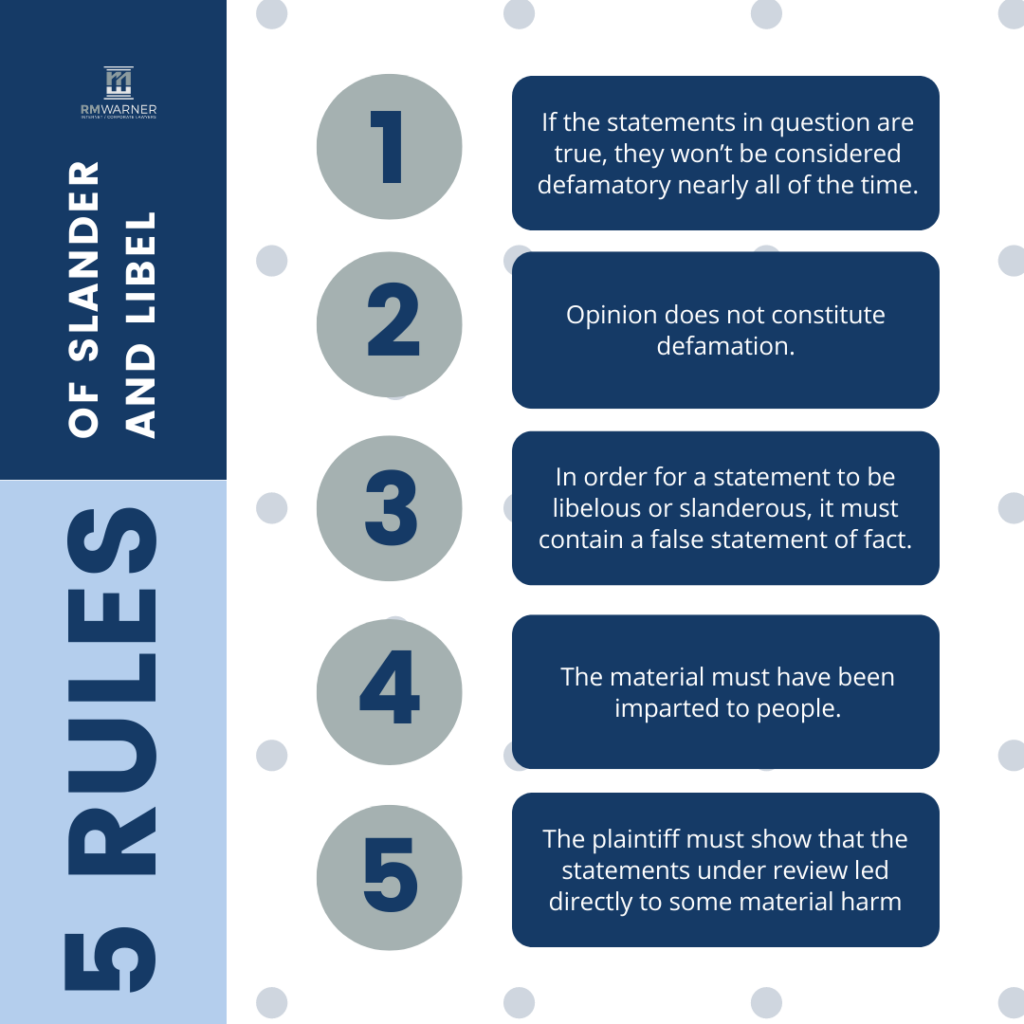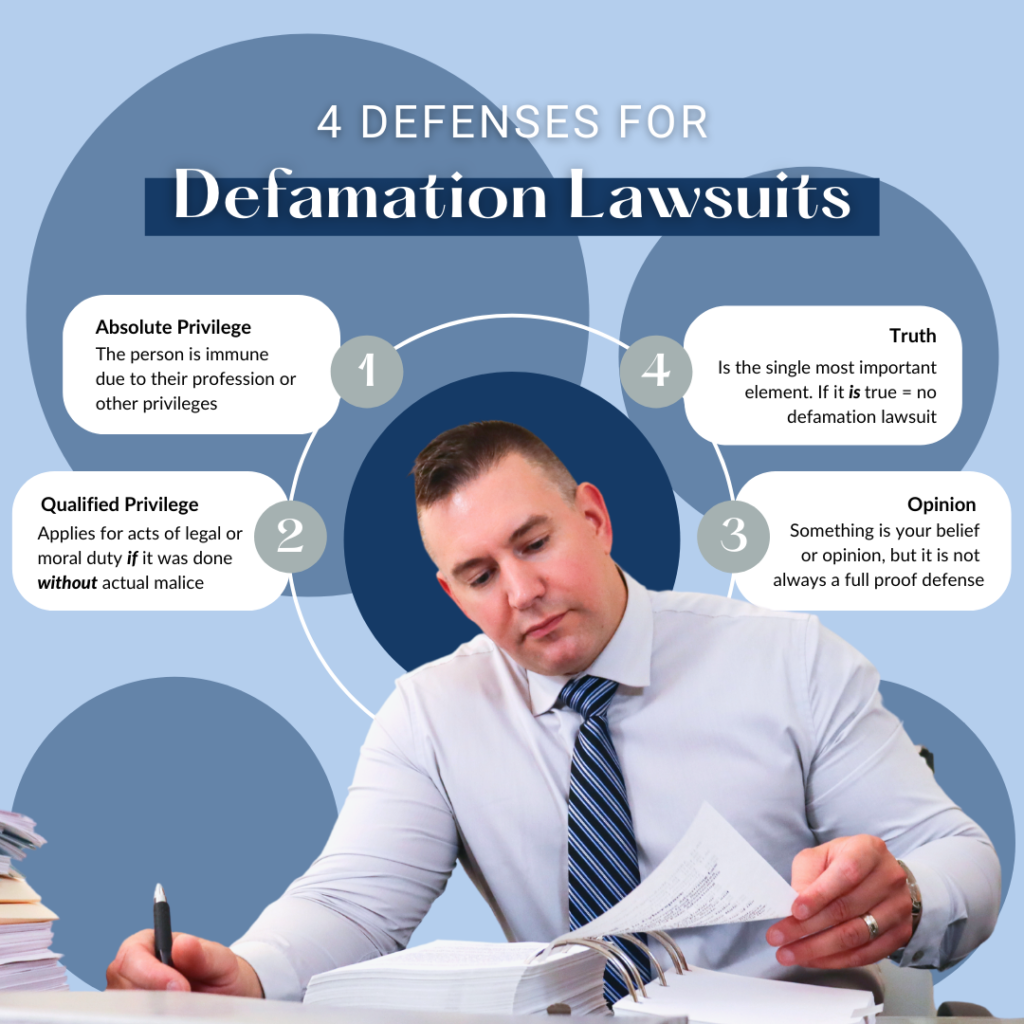Defamation, Libel and Slander: What Are Your Rights to Free Expression?
Defamation, Libel and Slander: What Are Your Rights to Free Expression?

One of the benefits of living in a democratic society is freedom of expression. As a human right, freedom of expression allows you to discuss, debate, and exchange ideas. It also grants you the liberty to seek and share information without fear of censorship. Does this mean there aren’t limits to free expression? Certainly not. Defamation law exists to defend a person’s reputation against lies that can cripple every aspect of their life. It establishes boundaries and creates a balance between both sides. Let’s explore these boundaries below.
 Defamation, Libel and Slander
Defamation, Libel and Slander
Defamation refers to harming a person’s character by making false written or verbal statements about them to a third party. Libel and slander are types of defamation—libel is written defamation while slander is spoken. Even though defamation is not considered a criminal act, the victim can sue the person who defamed them for damages.
For a statement to be considered defamatory, it must meet the following criteria:
- It’s published. This means that a third party saw, read, or heard the statement. A defamation attorney can use statements made via television, radio, speeches, gossip, or loud conversation for a slander case. To argue libel cases, they can arm themselves with screenshots of social media posts or clippings of magazines, books, newspapers, leaflets, etc.
- It’s untrue. According to defamation law, a true statement is not considered defamatory. Unpleasant, mean, and hurtful statements don’t qualify as damaging if they are true. In addition, most opinions don’t count as libelous or slanderous because they can’t be proved to be objectively false.
- It’s injurious. False statements that adversely affect a person’s reputation certainly qualify as defamatory. The victim has a solid case if they experienced emotional distress, ostracism from neighbours and friends, or media harassment, or if they lost their job as a result of the defamation.
- It’s unprivileged. Certain remarks are considered privileged and, therefore, cannot be used as the basis for a defamation lawsuit. For example, statements made in court proceedings are considered privileged. This is done to help witnesses freely testify without the fear of being sued. Witnesses may, however, face perjury charges if they aren’t careful.
 Potential Defenses to a Defamation Lawsuit
Potential Defenses to a Defamation Lawsuit
While free expression is vital in our modern world, you still have a duty to act responsibly.
However, if you find yourself on the other side of a defamation case, you should employ the services of a defamation attorney to explore possible defences. Defenses to a defamation lawsuit include:
- Proof that the statement is true. Truth is your best defense to a defamation lawsuit. If your statement is true, your attorney can move to have the case against you dismissed.
- Absolute privilege. With absolute privilege, even if a person can prove that you knowingly made false and malicious statements against them, they cannot sue.
- Qualified privilege. Certain statements made during the performance of one’s duty are protected under qualified privilege. Perhaps you gave a negative reference for a former employee. If the statements made in your reference turn out to be false, you may be excused if you believed the remarks were true at the time.
- Responsible communication on matters of public importance. You can rely on this claim if you are a journalist. Defamation law may be on your side if the news was urgent and of public importance, and you can prove that you made an effort to verify the information before publishing.
- Fair comment. Everyone is entitled to comment on matters of public interest. As long as your statements were clearly expressed as opinions based on facts, and you can prove there was no malicious intent, you have a defense to a defamation suit.
Defamation Attorneys at RM Warner Law
Do you need a defamation attorney? Our team at RM Warner Law can provide sound legal advice and representation. Give us a call today to schedule an appointment.
Similar like this
You also might be interested in
Mastering Defamation Defense: In-Depth Strategies from RM Warner
Accusations of defamation can be daunting and stressful. Understanding your [...]
E-commerce Law: Adapting to Global Trends and Regulatory Changes in 2024
In the dynamic digital commerce landscape, e-commerce law is a [...]
The Comprehensive Guide to Handling Defamation in the Era of Social Media
The power of social media is undeniable. It connects us [...]
Advanced E-commerce Legal Strategies: Navigating New Challenges in 2024
The e-commerce industry is witnessing remarkable growth and transformation in [...]





